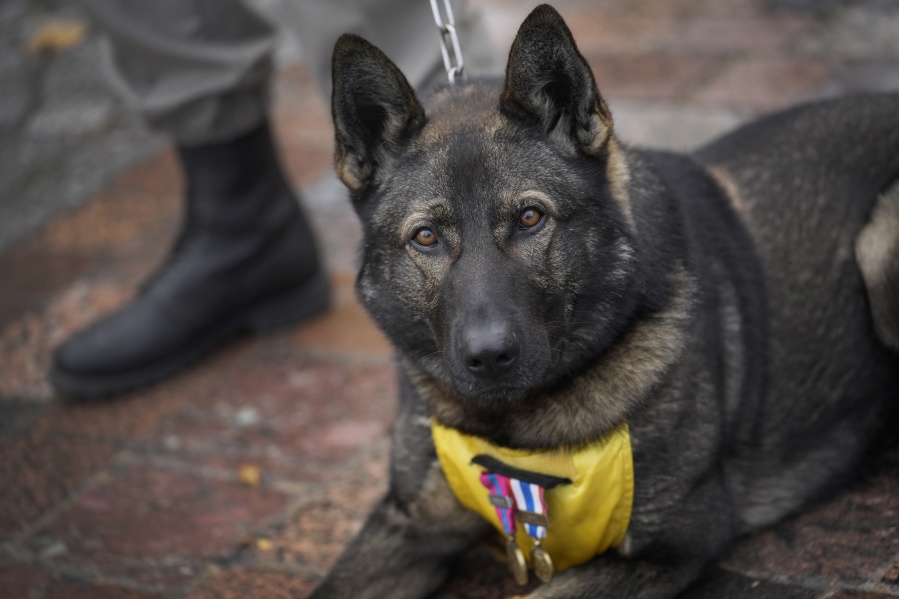SUIPPES, France — From tracking down suspects in the 2015 Paris terror attacks to fighting extremists in Africa’s Sahel region, dogs have helped French soldiers, police officers and rescue teams save lives for more than a century.
In recognition of the four-pawed partners, France last week inaugurated a memorial paying tribute to all “civilian and military hero dogs.” It features a sculpture by French-Colombian artist Milthon depicting a World War I soldier and his dog huddled together.
The monument is located in front of the town hall in Suippes, part of an area of northeast France that saw major battles during World War I. The placement acknowledges the important role dogs played in the U.S. and European armies of the time.
Suippes is also home to the largest military kennel in Europe, where members of the French army’s 132nd canine infantry regiment train dogs for military duty. The regiment currently consists of 650 army personnel and 550 dogs.
The monument in homage to hero dogs was an initiative of the French kennel club, the Centrale Canine. Animals from the army regiment attended last week’s ceremony inaugurating the memorial wearing their military medals.
“It’s very important (recognition) because dogs, like human beings, carry out missions, but we don’t ask them for their opinion. So to me, it’s fair to give them back a medal,” said Johann, an adjutant in a combat unit. (He and other human members of the unit could only be identified by their first names for security reasons related to their military status.)
The regiment in Suippes is preparing dogs for combat zones where they would be tasked with sniffing out and chasing potential enemies. Some are also trained to detect explosives and drugs. Each dog is paired with a soldier.
Johann, a member of the regiment for 12 years, is now paired with a Dutch shepherd named Nasky. He has not lost a dog in action, though he has colleagues who have.
“It’s significant from a psychological point of view and very hard for the handler,” he said. “But in those moments, we take upon ourselves (to continue), and when we don’t have our dog anymore, we still are infantry soldiers and we must be able to continue our missions.”
The regiment’s recruits are involved in French operations abroad, including in Africa’s Sahel region, West Africa and the Middle East. They also are sent on domestic missions and to work in French territories overseas, such as combating gold trafficking in French Guiana.
The dogs selected for training sometimes are recruited when they are puppies, but most are 18 months old. Many come from France, others from the Netherlands, Germany and countries in eastern Europe.




